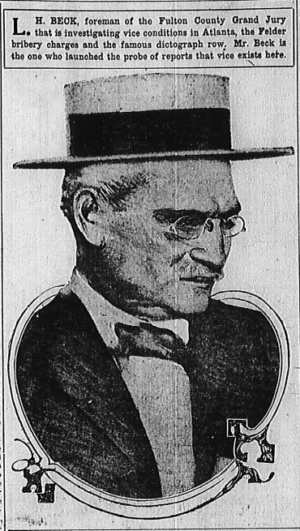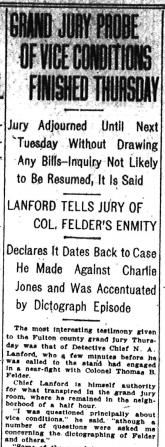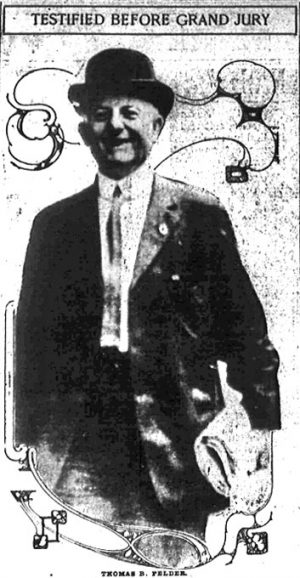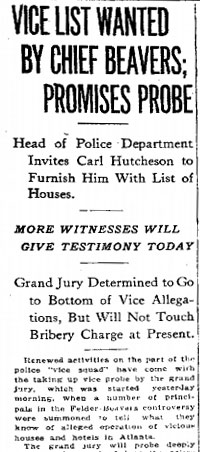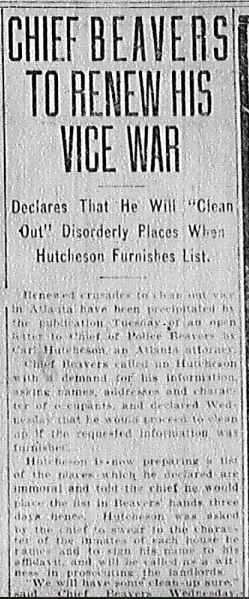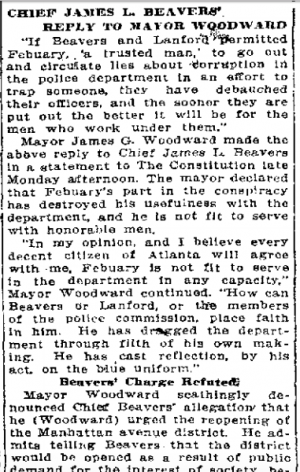 Another in our series of new transcriptions of contemporary articles on the Leo Frank case.
Another in our series of new transcriptions of contemporary articles on the Leo Frank case.
The Atlanta Constitution
Wednesday, July 9, 1913
Because the attorney of Lena Barnhart, who is accused by Hattie Smith of being a white slave procuress, pleaded for time in which to obtain witnesses to the effect that the Barnhart woman had been introduced to the girl and had been her benefactress, the recent hotel vice scandal which was to have been given an airing yesterday in police court was postponed until today at 2:30 o’clock.
Chief Beavers ordered detectives Tuesday morning to summon C. V. Kistner, proprietor of the Hotel Cumberland, to appear in recorder’s court and bring the guest register of his establishment. It is rumored that the registers of a number of hotels will be probed within a short while.
The case against Elijah Murray, the negro bell boy of the umberland [sic], and against J. Cox, the man who figured in the first arrest in the case, were all postponed until today. Each will be given an airing.
* * *

 Another in
Another in  Another in
Another in  Another in
Another in  Another in
Another in  Another in
Another in  Another in
Another in  Another in
Another in  Another in
Another in  Another in
Another in 

